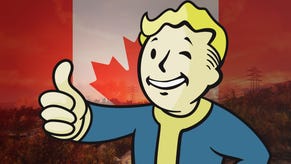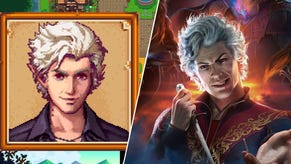Half-Life 3: it will be worth the wait, or it just won't ever be at all
Where is Half-Life 3? Brenna thinks she knows: it's a victim of its own success, locked away until such time as it can bring something as exciting as its prequels did.
To keep a reputation as one of the finest developers in the world, Valve can't just crap out a Half-Life sequel. It needs to up the ante, and it needs to up it considerably. Whatever Half-Life 3 is, it won't be "just more Half-Life". It will have something new and different, and something very special.
It's testament to the quality and import of the Half-Life franchise that 15 years on from the first release, and six years on from the latest, its promised sequels are still among the most-requested and discussed games ever to exist in potentia. Half-Life 2: Episode Three and Half-Life 3 are almost guaranteed bestsellers; their vapourous fame is such that thousands who didn't play the originals will sign on and have a go.
So why the heck isn't Valve spitting them out like nobody's business? One of the things that makes fans so hopping mad is because it would be so easy to provide what they think they want. "Just give us more Half-Life," is the plea. "How hard can that be? More Gordon Freeman having adventures. More Alyx. More first-person, immersive narrative; more interactive world; more strong level design; more cool puzzles and weapons and aliens."
Valve could do that, pumping out a few more episodes or even a full sequel to keep the clamouring to a minimum. But it'd be doing something it has never done before - churn out another game just because it can, and not because it's had a boatload of ideas just begging to be executed. Half-Life and Half-Life 2 don't exist because Valve needed to make money, although there was a time when it did; they exist because Valve had something special to do and say with games.
The Half-Life games are much more than simple shooters; they are pioneers of first-person narrative technique and immersive level design. It's easy to forget now that the formula has become generic, but it was a bold move to work with the strengths of gaming as a medium rather than against them, and its impact is felt in most modern triple-A games, from Call of Duty: Ghosts to Beyond: Two Souls. Techniques introduced in the first game were hugely refined in the second, and to a lesser degree in the Episodes. It contributed to a still-developing trend in gaming in which narrative is not just tacked on after the mechanics have been hammered out, but an intrinsic part of the entire creative process.
But although Half-Life and its sequels were highly influential and greatly enjoyable, they haven't necessarily aged very well; players trying it for the first time today, informed by dozens if not hundreds of games employing its once-groundbreaking techniques, likely won't find it as mind-blowing as contemporary gamers did. In fact, they may find it a little annoying - it contains a number of tropes that have started to wear thin due to repetition. It's like watching an early slasher film and finding it a bit dull and predictable because nothing in it is shocking to you, even though contemporary audiences were gobsmacked by the tension and special effects. It's still the first and maybe even the best, but the impact has been lost.
If Valve were to release a game that was, essentially, "just more Half-Life", many fans and most critics would probably be disappointed anyway; the weight of expectation is that the franchise repeat its accomplishments by breaking new ground, establishing new conventions, and blowing our tiny minds. "Just more Half-Life" isn't going to achieve that. It won't do new things. It won't surprise.
Valve's modus operandi to date has been to do new things; to surprise; and to meet or exceed expectations. Its sequels - Portal 2 and Left 4 Dead 2 - exist because there was something more to be done with those ideas, something that required a complete rebuild. We didn't just get more Portal, or more Left 4 Dead; indeed, Left 4 Dead still had so much life in it that Valve's decision to enact a total rebuild with Left 4 Dead 2 met with fan disapproval and accusations that the developer was milking it despite the many and varied improvements the new tech delivered.
It's an unfair accusation. Valve doesn't need to "milk" for money by ever releasing a shitty sequel; it owns Steam, has more cash than it is likely to need for a very long time, and doesn't give a rat's arse how many Fry TAKE MY MONEY pictures you send to it. But to keep a reputation as one of the finest developers in the world, Valve can't just crap out a Half-Life sequel. It needs to up the ante, and it needs to up it considerably. Whatever Half-Life 3 is, it won't be "just more Half-Life". It will have something new and different, and something very special.
Where is Half-Life 3? It might be in the works. It might be nowhere. Perhaps it's almost finished, or perhaps nobody at Valve has yet come up with the single, core idea that will form the heart of the new game, that spurs Valve to create something bigger, better and bolder than its progenitors. What is guaranteed is that when it does arrive it will be worth the wait - or we will simply wait forever. For Valve, there's no middle ground.
I'll tell you what though; even though it won't be platform exclusive, "something new and different" just might be "being the perfect showcase for the Steam Controller", which is expected next year along with the first wave of Steam Machines. Something to think about, yeah?










-trailer---Sonic-%26-Knuckles.jpg?width=291&height=164&fit=crop&quality=80&format=jpg&auto=webp)